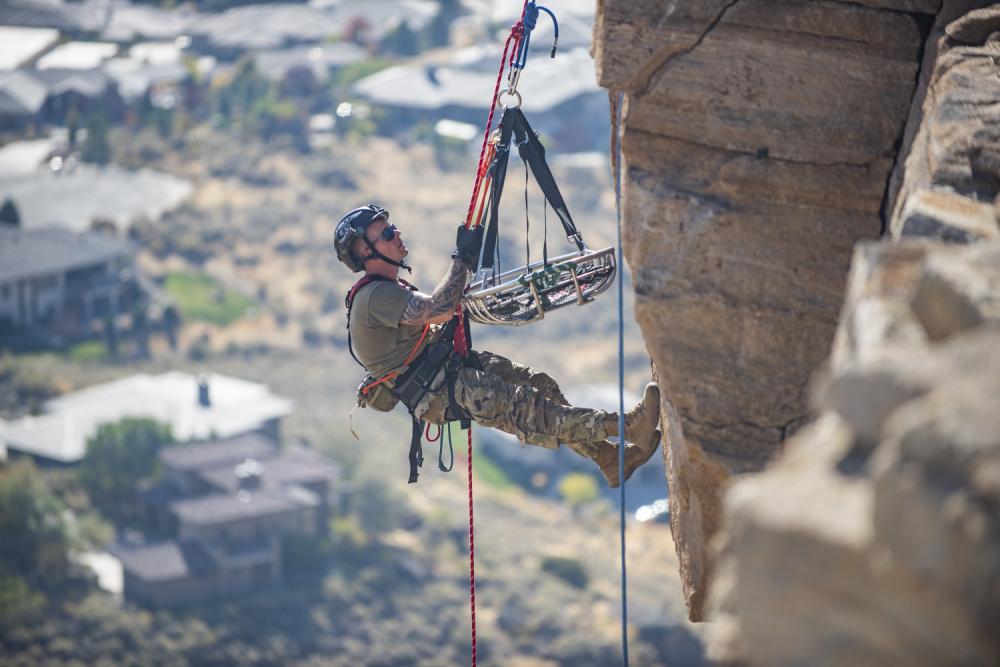Boise firefighters train Idaho’s Civil Support Team on rope rescue

Throughout the month of October, the Idaho National Guard’s 101st Civil Support Team partnered with the Boise Fire Department Technical Rescue Team to participate in a ropes rescue course taught by Boise firefighters. The course, which served as an annual recertification for the CST Guardsmen, entailed two weeklong sessions for the 22-member team and helped the Boise firefighters refine their skills as trainers.
“This training benefits both the Idaho National Guard and us,” said Brent Matthews, captain of the Boise Technical Rescue Team. “Not only are we certifying our partners on ropes rescue training, but our instructors also get valuable experience and more proficient as certifiable instructors.”
The first week, Oct. 10th through the 14th, started with the classroom portion of learning about ropes rescue as a prerequisite for the hands-on portion of the training. Using what they learned about the ropes, the CST Guardsmen rappelled from tops of buildings at the Boise Fire Department’s Fire Training Center.
Once the Guardsmen were proficient at ropes rappelling, they practiced ropes rescues using wire rescue baskets at cliffs near the Table Rock trails in the Boise foothills to simulate a large-scale rescue of multiple people.
“To utilize the CST in ropes rescue, there would be an instance where something serious happened like a natural or man-made disaster or an emergency where the local search and rescue team wouldn’t have enough resources and could call us,” said Lt. Col. Robert Grimes, 101st CST commander.
The second weeklong training, Oct. 24th through 28th, focused on confined space rescues at Boise’s Lucky Peak Power Plant. The training mirrored a scenario where a devastated occurrence or a large-scaled catastrophe, like an earthquake, happened with severe damage to a building that could involve chemicals. This would require HAZMAT precautions, along with a large number of rescues in buildings with confined spaces, and would involve ropes and sked stretchers.
These incidents could be intensified by a lack of oxygen that is available in a non-ventilated area and complicated by the tight confines of the space, requiring rescuers to have air tanks during a rescue.
“Confined space is a rescue of people, for instance, inside of a building, in a tunnel or inside tanks where there could be a HAZMAT situation. They might be injured too badly to get out on their own or they could be unconscious,” said Grimes. “The CST has the capability to respond to weapons of mass destruction and HAZMAT scenarios already. The ropes rescue and confined space training adds another capability for the CST to assist the local fire departments and local agencies.”
The Boise Fire Department Technical Rescue Team is highly trained to handle the emergencies involving ropes rescues and confined space rescues, however, they could call upon their 101st CST partners if the large number of rescues surpassed their limit.
“We’ve been building this relationship and working together for quite a while,” said Matthews. “The CST has really great HAZMAT capabilities. Having the CST already trained at HAZMAT, plus the ropes rescue and confined space training, benefits us as well. In the future, I’d like to see us integrate more in real-world situations. When we have a HAZMAT call with confined spaces, we can call them to assist. I can see us working really closely together in the future.”
 Official Government Website
Official Government Website